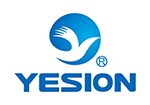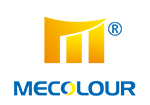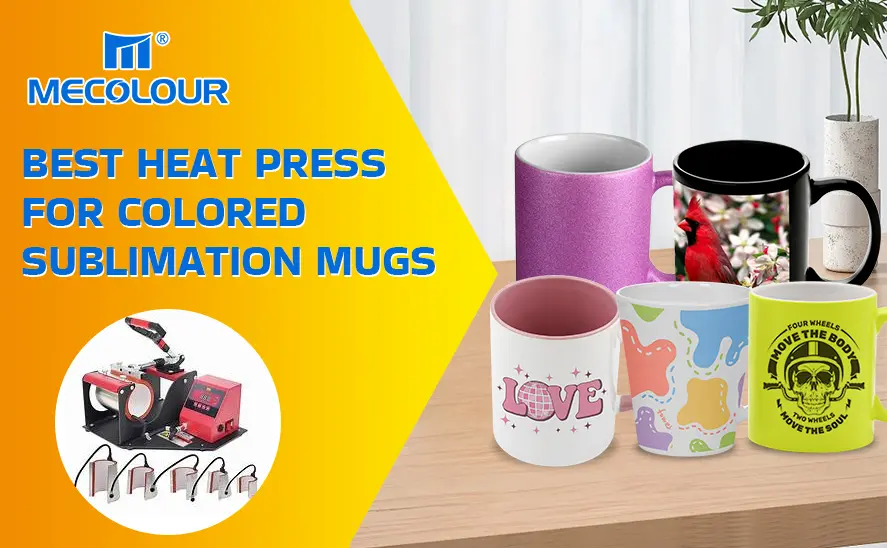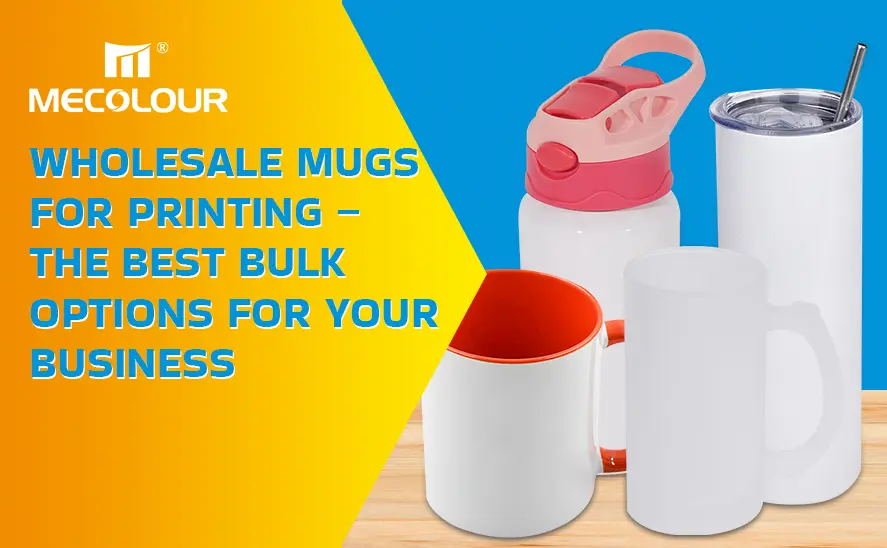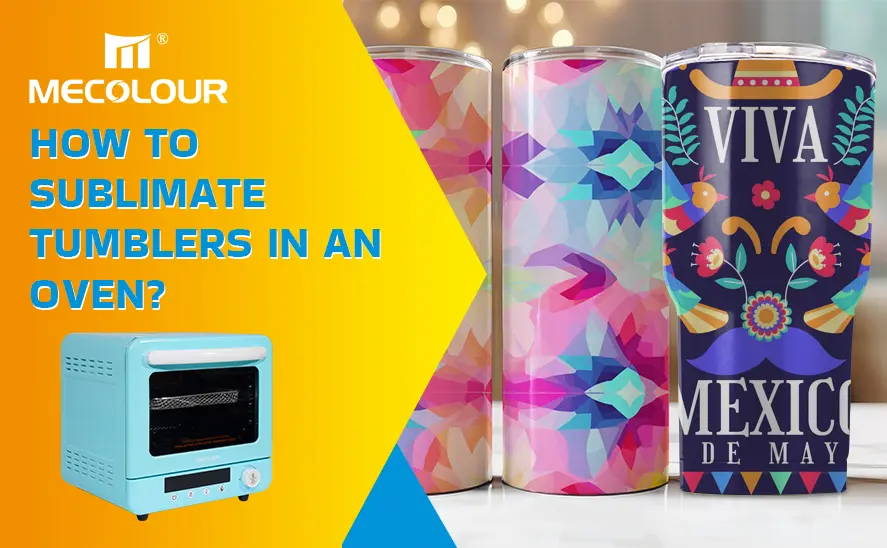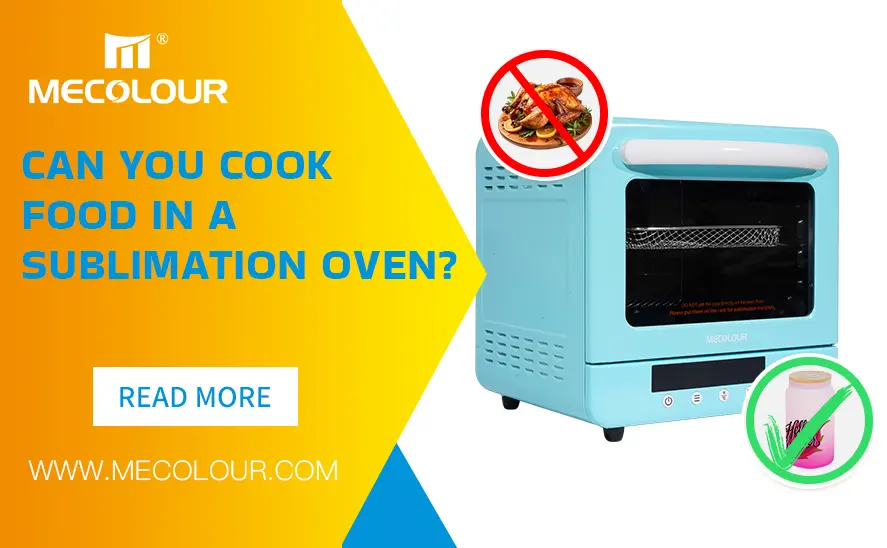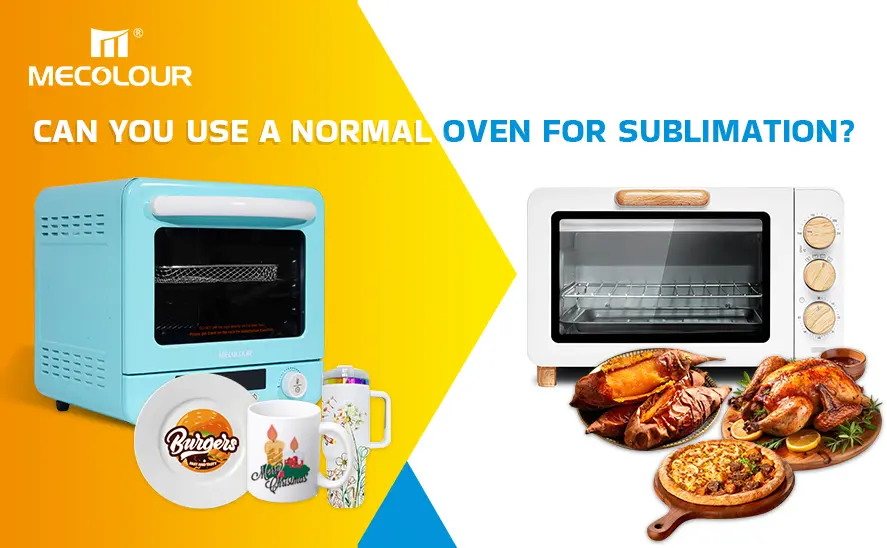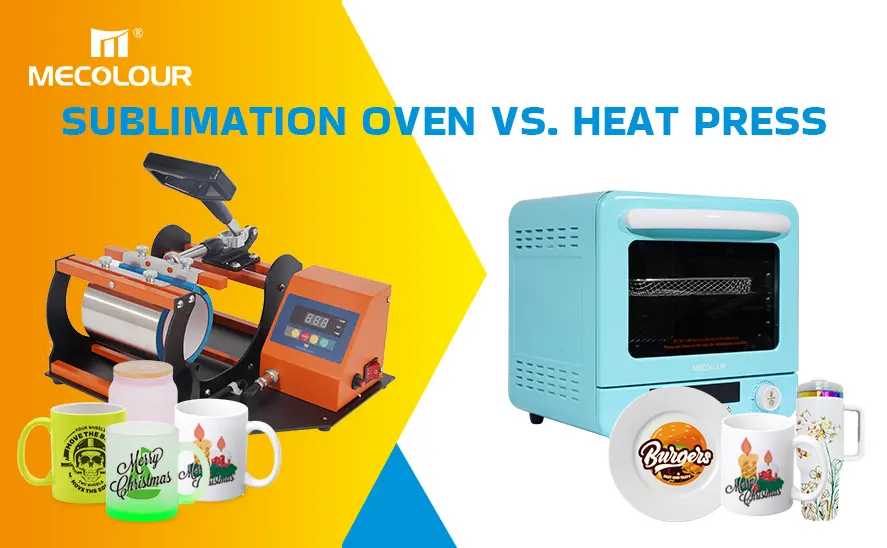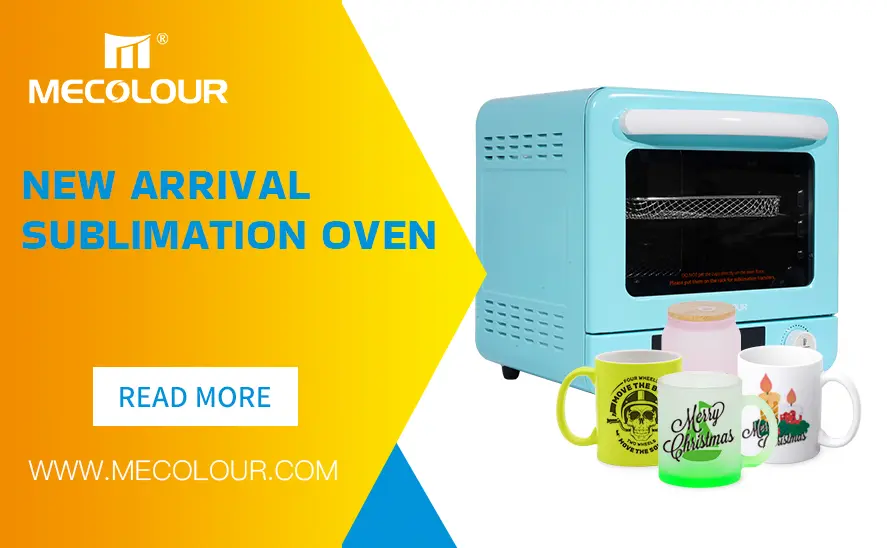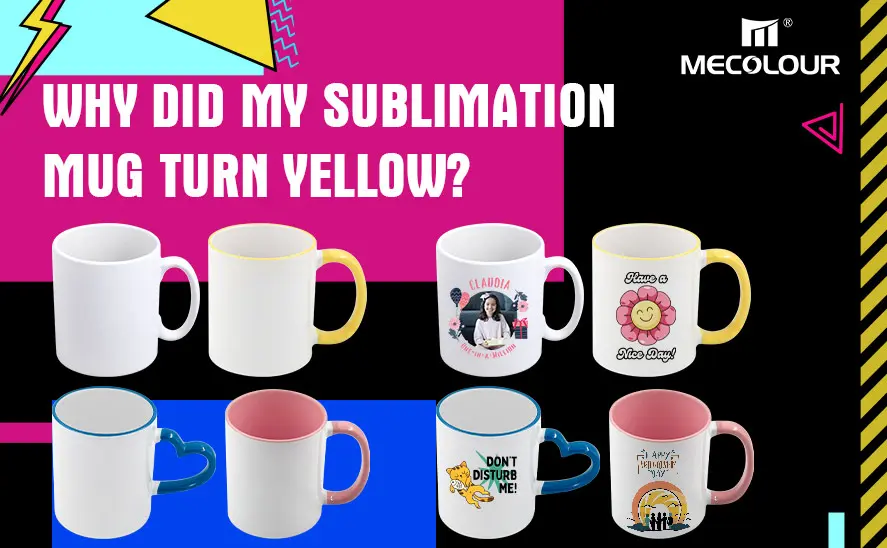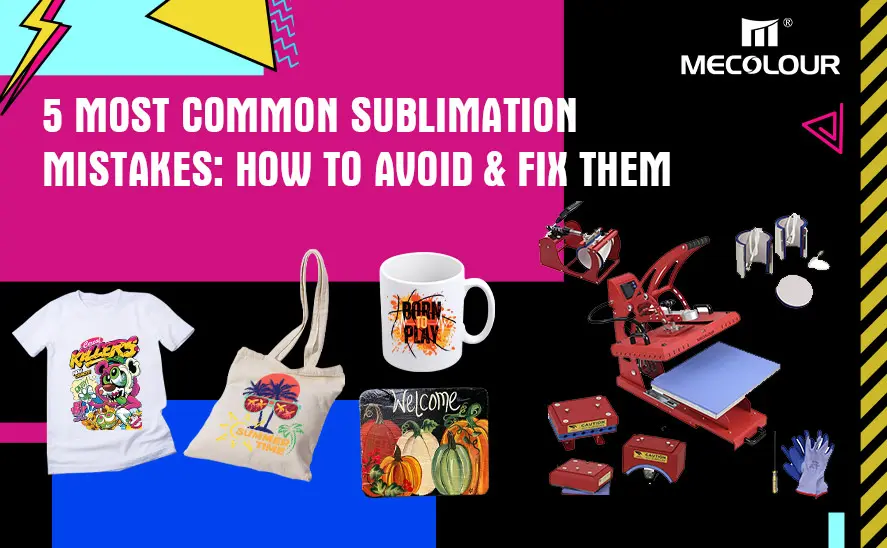What materials can I use for sublimation printing?
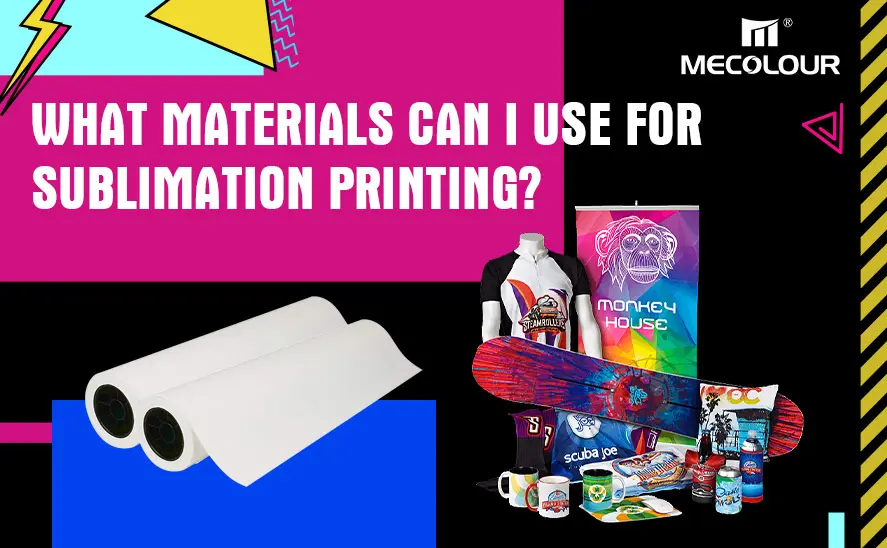
Sublimation printing offers a unique and vibrant way to transfer designs onto various materials. To achieve high-quality results, it is essential to select the right substrate that bonds well with sublimation inks. In this guide, we explore the best materials for sublimation printing, along with key factors that make each one suitable.
Materials Suitable for Sublimation
1. Polyester Fabrics
When it comes to sublimation printing, polyester is the go-to fabric. Sublimation ink chemically bonds with polyester, resulting in durable and vivid prints that last a long time. Polyester shirts, sportswear, and other fabric-based products made of at least 65% polyester are ideal for this technique.
Why Polyester?
Durability: Polyester retains the sublimation print after numerous washes without fading.
Vibrancy: Colors are absorbed deeply, leading to bright, bold images.
Versatility: Available in various forms like fabrics for clothing, tablecloths, and upholstery.
For best results, we recommend using fabrics that are 100% polyester or blends with a higher percentage of polyester.
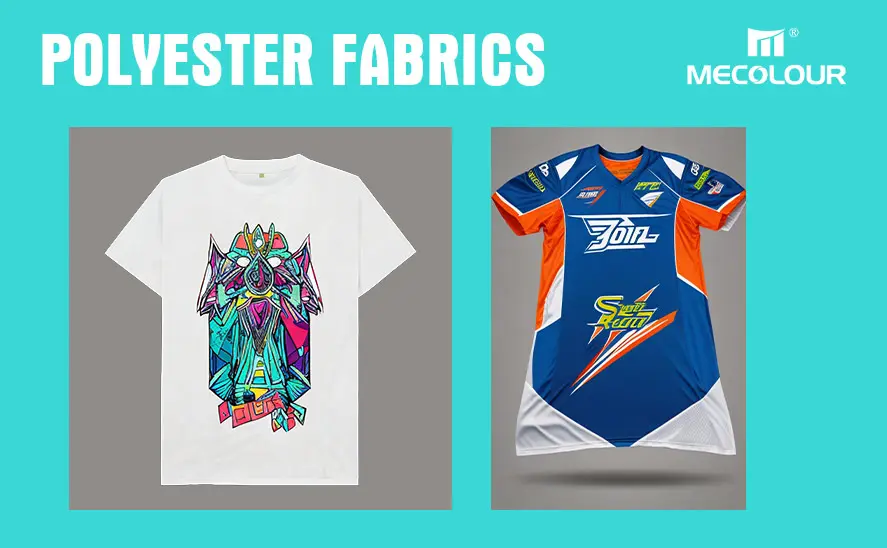
Polyester Fabrics
2. Polymer-Coated Hard Substrates
Not limited to fabrics, sublimation printing can also be used on rigid surfaces. Polymer-coated materials are essential for this purpose, as the sublimation inks only bond with polymers.
Popular Polymer-Coated Materials Include:
Ceramics: Mugs, plates, and tiles that have been treated with a polymer coating are perfect for sublimation. Sublimation mugs are one of the most popular items in the market.
Metal: Sublimation on aluminum sheets or other metals with a polymer coating creates sharp, detailed prints ideal for plaques, signage, and photo panels.
Wood: Special polymer-coated wood panels can be used for personalized plaques, decorative items, or photo frames.
Glass: Sublimation can be done on glass objects such as coasters, ornaments, and cutting boards, provided they are treated with a polymer coating.
These hard substrates open up a range of creative possibilities beyond fabric, allowing businesses and individuals to personalize and sell a variety of custom items.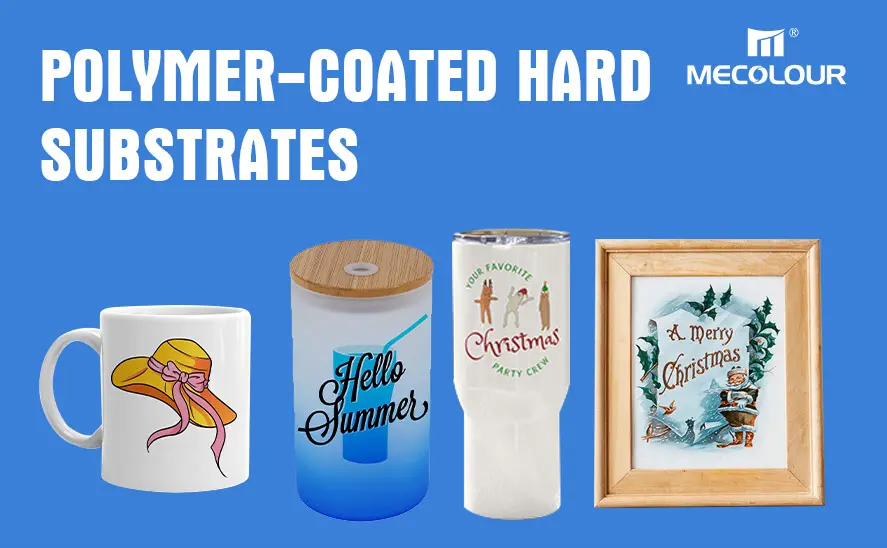
3. Polyester-Coated Items
In addition to polyester fabrics, polyester-coated products offer another avenue for sublimation printing. These products can include:
Phone cases: Specifically designed with a polyester coating to hold sublimation ink.
Mousepads: Made with polyester tops for high-resolution prints.
Keychains: Lightweight and customizable with sharp imagery.
Puzzle pieces: Polyester-coated puzzles make for an interactive, personalized gift.
The key to success with these items lies in ensuring the coating is smooth and designed to bond with sublimation inks.
4. Sublimation Paper
Though not a final product itself, sublimation paper is essential in the sublimation process. Sublimation paper holds the ink during transfer and works in tandem with heat press machines to deposit the ink onto the final substrate. It’s critical to choose high-quality sublimation paper for accurate color reproduction and crisp designs.
Types of Sublimation Paper:
Lightweight Paper: Best for high-speed printing, especially for fabric applications.
Heavyweight Paper: Ideal for rigid substrates like ceramic or wood, ensuring precise ink release.
5. Polymer-Coated Synthetic Leather
Synthetic leather, also known as faux leather, coated with a polymer layer, allows for beautiful, durable sublimation prints. This material is often used for items like:
- Wallets
- Handbags
- Journals
With a smooth surface and the ability to hold vibrant colors, polymer-coated synthetic leather provides a high-end look for custom products.
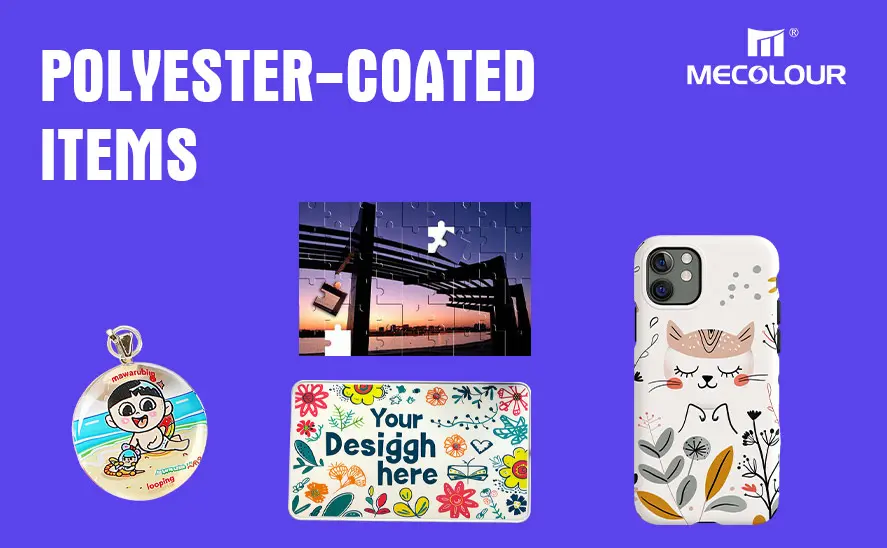
Polyester-Coated Items
6. Plastics
Polyester-based plastics can also be used for sublimation printing. The key is ensuring that the plastic is heat resistant and contains a polymer that bonds well with sublimation ink.
Common Plastic Products Include:
ID badges: Sublimation produces clear, lasting identification cards.
Name tags: Ideal for corporate use, with sharp, vibrant logos or names.
Signage: Polyester-based plastic signs can be customized to meet specific branding needs.
7. Blended Fabrics
While 100% polyester works best, blended fabrics can also be used for sublimation. Fabrics that are a mix of polyester and cotton (with at least 50-65% polyester) can accept sublimation inks. However, the lower the polyester content, the more faded the image will appear.
Popular Blended Fabrics:
Poly-cotton: These blends are soft, making them a comfortable choice for apparel, though the print may not be as vibrant as on 100% polyester.
Polyester blends with spandex: Used for athletic wear, this blend offers flexibility with durable prints.
8. Polyester-Coated Stone Tiles
Stone tiles, commonly used in home decor, can also be sublimation printed, provided they are coated with polyester. Custom tiles featuring family photos or artwork are popular for both personal gifts and interior design projects. The smooth surface and polymer coating ensure that the ink bonds well and produces a long-lasting result.
9. Polymer-Coated Fiberboard
For a unique material option, fiberboard, also known as MDF (Medium Density Fiberboard), coated with a polyester layer, allows for high-quality sublimation prints. This is an excellent choice for personalized photo frames, plaques, or coasters.
10. Neoprene
Neoprene, often used for items like laptop sleeves, drink koozies, and lunch bags, can also be used for sublimation. These products generally have a polyester outer layer, making them suitable for sublimation. This material’s durability and flexibility make it ideal for creating long-lasting, custom-printed items.
Materials NOT Suitable for Sublimation
Cotton fabric: Sublimation ink doesn’t bond with cotton, leading to dull prints that wash out.
Non-polymer-coated surfaces: Any material without a polyester or polymer coating won’t hold sublimation ink.
In conclusion, sublimation printing is a versatile technique that works on a wide variety of materials. Whether working with fabrics, hard substrates, or unique items like synthetic leather and neoprene, choosing the right material is crucial for achieving vibrant, long-lasting results. Polyester and polymer-coated items offer the best compatibility with sublimation inks, ensuring high-quality, durable prints. With the right substrates, sublimation printing can bring any design to life, offering endless opportunities for customization across a broad range of products.


